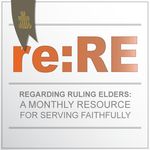A suburban Presbyterian church knew that its neighborhood had been changing, with an increasing number of immigrant Latino families now living in the area. A ruling elder from the church wanted to meet with me to ask how they should reach out to the growing Latino community. As a church, she thought, they should offer worship opportunities to their new neighbors, so she was wondering how to start a Spanish-language service. In her mind, she could already see a banner hanging outside the church announcing their new worship in Spanish. Knowing that the church had very few racial ethnic minorities on their rolls, and that they had not done any outreach to the Latino community before, I asked her to take a step back before we went any further. I asked “What are you good at as a church? I would focus on that first as the way to connect with this new community.” For example, I said, if you were to tell me that your church has a very successful daycare, then I would wonder about the impact on your ministry if you hired a bilingual person to work part-time at the daycare. I could tell that my suggestion had gotten the wheels turning. The ruling elder said that in fact they had several active and retired teachers in the congregation, as well as a couple of bilingual people. With that she began to consider how those strengths could be used as key components of a new outreach.
The ruling elder got her session thinking about this idea, and in subsequent meetings a process began to take shape to create a bilingual tutoring ministry. One of the interesting aspects of their plan was that instead of having the children come to the church for tutoring, these Presbyterian volunteers would tutor in the community room at an apartment complex where many Latino families lived. It was the church going to the people, rather than expecting the people to come to the church. The program created a buzz in the community and was successful for many years: helping children improve in the school, nurturing a connection of the church and the community, and re-energizing a passion for mission within the church.
information provided here:
Please contact Martha Miller at martha.miller@pcusa.org and browse the Ruling Elders Web site
Ruling elders play a key role in any outreach to a church’s changing community:
- Ruling elders who are curious and engaged are particularly well-suited for having their ear to the ground to notice trends, strengths, and needs in their community.
- Ruling elders know how to build relationship bridges between the church and its neighborhood.
- Ruling elders with a heart for mission understand the importance of fostering buy-in from the community they are supporting, inviting the community to partner in the development and launch of an outreach effort.
- The more ruling elders are involved in the planning and implementation of outreach ideas, the better the congregation’s ownership of the project will be.
Many of our congregations are blessed with opportunities to reach out to their increasingly diverse neighborhoods. The stories of cross-cultural ministry with the deepest impact in the church and community have at least one thing in common: the energy and passion of the ruling elders in leadership.
Felipe N. Martinez is the transitional general presbyter and stated clerk at the Presbytery of Great Rivers. The first ten years after graduating from McCormick Theological Seminary, Felipe served as pastor of a small rural congregation. He then supported Hispanic ministry and an international partnership with Mexico as associate executive presbyter in Whitewater Valley Presbytery for eleven years.

